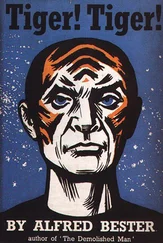The other cubs began to shout and wave. Tired of the game, they were moving on. They beckoned for the lone cub to accompany them, but he pointed into the bushes and jabbered something in his curious high-pitched voice. Evidently the rattan ball belonged to him and he wanted to retrieve it. The others wandered away and it was very quiet now. The Upright turned back and began to employ the stick more aggressively, muttering softly to himself as he searched. He moved a few steps nearer to Haji and looked there, stooping down on one knee and pushing the thick leaves aside with his bare arm. He was so close now that Haji could smell his half-naked little body; the faint odour of sweat drifting from beneath his armpits; the aroma of rice and cooked meat on his breath. Now, the cub’s gaze fell on the bamboo thicket. Through the gaps in the upright stalks, he could perceive the shadowy sphere that was his ball. With an exclamation of relief, he moved forward and thrust an arm into the thicket to try and retrieve the ball. It was quite a stretch.
Haji gazed at the little brown hand as it grasped the ball, no more than two feet from his own paws. It was a strange-looking arrangement, more like a soft brown crab with wriggling feet than anything else. But it gripped the ball surely and snatched it out from the cover into sunlight. The cub got to his feet as though to walk away, but then he hesitated, sniffing the air suspiciously. He gazed intently into the thicket, scratching his head in puzzlement. Then he sank down again onto one knee, reached out to push the screen of bamboo aside …
‘Ché!’ A mother’s voice from somewhere in the kampong . ‘Ché!’ The cub frowned, half turned, stared off into the jumble of tumbledown dwellings as though reluctant to answer his mother’s call. He turned back to the bamboo, reached out his hands again …
‘Ché!’ Again the call, more insistent now. It was time to eat, or wash, or sleep. The cub’s tiny fingers, curled around the stems of bamboo, slid gently away. With a sigh, he collected his ball and trudged wearily homewards, forgetting now the unfamiliar odour that had initially roused his curiosity.
Haji watched the cub walk away into the lengthening shadows of late afternoon. Soon, the sun would die bloodily on the horizon and the brief twilight would come and go in silence. In the high-stilted kampong houses, oil lamps would be lit and prayers would be muttered to safeguard the villagers from the demons of advancing darkness. And for Haji, the long night’s hunt would begin.
He got to his feet and, silent as a ghost, he limped away.
Harry ‘Tiger’ Sullivan was occupying his favourite table at the Officers’ Mess, Kuala Hitam barracks. It was a table like all the others, but it was placed in a strategic position where the sitter could take in every corner of the Mess at a glance. Harry had been using the same table for something like eighteen years now, and it was an unspoken custom in the Mess to leave it free whenever Harry was around. In retirement, he used the table as often as he had when he was a Lieutenant Colonel with the resident regiment, the Fourth Gurkha Rifles. He had now been retired for five years but was as much a central figure at the Mess as he had ever been. Nobody would have dreamed of questioning his presence there.
Trimani, the white-coated Tamil barman, approached the table with the customary chilled glass of ‘Tiger’ beer. The care and reverence with which Trimani went about the task made it almost a religious ceremony. The glass was wearing a clean towelling band to make it more agreeable to the touch.
‘Thank you, Trimani.’ Harry put a hand into the breast pocket of his cotton jacket and pulled out a leather wallet containing five cigars. He extracted one, cut the end with a silver gadget he always carried, and placed the cigar between his lips. Trimani was waiting with a match and Harry puffed contentedly, releasing clouds of aromatic smoke.
‘The Tuan has had a good day?’ ventured Trimani politely. Like every other aspect of the ceremony it was a habitual question.
‘Very good, Trimani, thank you very much.’ And Harry dropped a fifty-cent coin into the barman’s silver tray. With a respectful nod, Trimani retired to his usual place behind the bar.
Harry sighed. The truth of the matter was, of course, that it had been a bloody boring sort of day. Most days for him had been bloody boring since he had left the forces; or more accurately, since he had been obliged to leave the forces. He had always felt bitter about that.
Harry was sixty-seven years old, but few people would have thought it. He was a thin wiry individual with not a pound of excess fat on his body. Though iron grey, his hair was thick (and a shade on the long side by forces standards) and his moustache was immaculately trimmed. He was undoubtedly the most popular officer that the regiment had ever possessed, and he was regarded now by the men with a peculiar kind of affection that elevated him almost to the role of a mascot. His connections with the Fourth went back a long way. He had originally served with them as a junior officer in India during the Burma campaign, where he had steadily risen through the ranks. He had come across to Malaya with them in 1948, where he commanded them during the ten-year ‘confrontation’ with the Communist terrorists. He had seen the task through admirably, and had expected to move on with them to Sarawak in 1962 to help quell the Brunei Revolt. But a medical examination had discovered a tricky heart problem and he had been promptly – and rather unceremoniously, he thought – dumped in favour of a younger man. Shortly after that, he had been ‘bowler-hatted’, though he had moved heaven and earth in an attempt to stay in longer. It had been to no avail. He was sixty-three years old and, whatever his views concerning his own health, he must stand aside and give somebody else a chance. And so, reluctantly, he had settled down to enjoy an idyllic, well-pensioned retirement.
And that was where his problems had really begun. A man who had spent his life with energy, authority, and decisiveness did not take very kindly to lazing about on beaches or beside swimming pools, and there was not a great deal more to do in this lonely outpost. Situated in the Dungun district of South Trengganu, on the east coast of the Malay Peninsula, the area was little more than several isolated kampongs , the barracks and a few accompanying dwellings, dotted at intervals of a mile or so along the main coast road to Kuala Trengganu, the state capital. All around lay thick and virtually inaccessible jungle. The barracks had been established as a forward grouping point in the campaign against the C.T.s, who had known only too well how to use the jungle to their own advantage. But the emergency had officially ended in 1960, and most of the troops had been dispatched back to the main barracks in Singapore. Now Kuala Hitam was maintained by what amounted to a skeleton crew; worse still, recent rumours of major cutbacks in the Gurkha regiments had become more than just rumours. The numbers were to be whittled down to a mere ten thousand men. For the rest, the prospects were nothing more than a meagre pension or redundancy payment and a one-way ticket back to their homes in India, where they were expected to pick up from where they had left off in 1940. The decision meant inevitable poverty and heartbreak for the majority of men, but, as always, the Gurkhas had accepted their fate with quiet humility. Now it was simply a question of waiting. Harry shared the feelings of regret, but was unable to change anything. His voice, which had once carried so much power in these matters, was now rendered useless; a vague, impotent whimper.
Harry raised the glass of beer to his lips and drank a silent toast to an old adversary, the head of which glowered down at him from above the doorway of the Mess. The taxidermist, as usual, had done a good job, but somehow they were never able to capture that certain look. The tiger’s eyes were blind glass, staring vacantly down at the peaceful crowd below. The expression of feral rage was totally contrived. He had died with a look of complete peace on his face; and, in dying, he had gazed up at Harry, seeming to ask, Why?
Читать дальше












